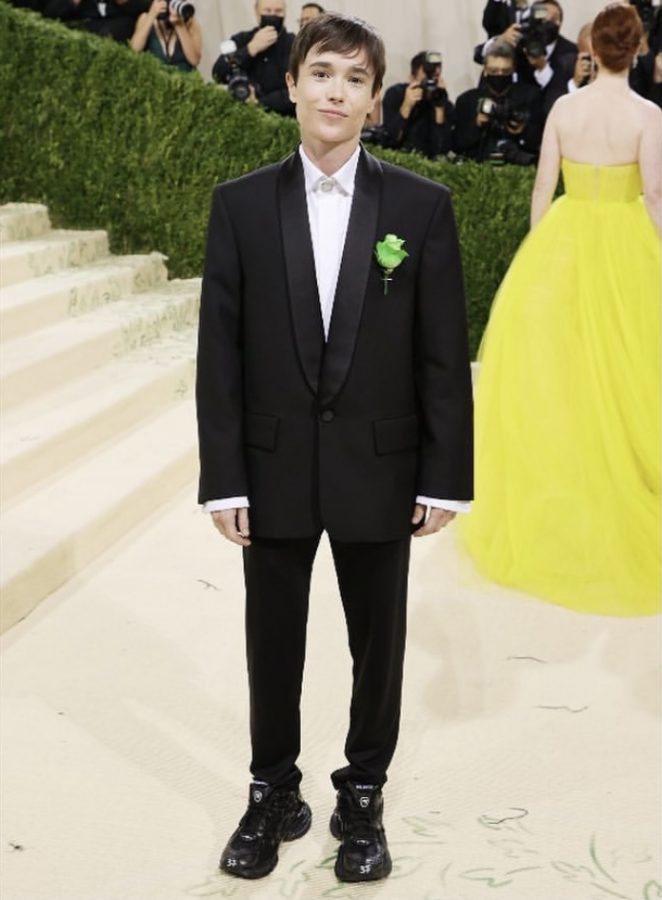Every year the Met Gala occurs, there is always criticism about the men attendees playing it “too safe.” You know who we’re talking about: the ones who choose to wear black suits instead of dressing to the normally extravagant themes and this year was no exception.
Several users jumped on social media after the gala to express their annoyance with this annual occurrence. However, there was one man that many purposely excluded from criticism even though he was dressed in a simple black suit.
Transgender actor Elliot Page arrived at the 2021 Met Gala in a black suit with a hidden meaning. While his attire was relatively plain, he accessorized with a green rose in what was seen as a nod to the queer British playwright Oscar Wilde. Wilde created a symbol of the green carnation in the theatre world, and this flower was worn for other gay men to identify each other safely.
A tribute to queerness made for a meaningful first runway appearance since coming out as transgender.
However, if we reduce the outfit down to its parts, Page was ultimately dressed rather simply compared to other male celebrities who also celebrated their queerness through their outfits such as Lil Nas X and Dan Levy.
Users took to social media to defend Page’s simple look, saying it was still a great fashion choice, but many comments were actually harmful while doing so.
A Twitter user tweeted that Page was “the only man [they’d] allow in a basic suit.” Another user on TikTok stated in a caption that Elliot looked like “mommy’s handsomest little boy.” In the same TikTok post, other commenters added that Page looked “so polite with his little flower” and his outfit was reminiscent of how a middle school boy would dress for his first dance.
While these users may not have had any ill intent, these comments perpetuate the infantilization of transgender men.
Comparing Elliot to a little boy and characterizing him as small and innocent does nothing but show that you do not see him as the 34-year-old man that he is.
These comparisons are extremely belittling, condescending and transphobic—pushing the harmful narrative that transgender men are not the same as cisgender men.
Saying that Page is the only man allowed to wear a basic suit insinuates there is something “other” about him that makes him different from other men, and this also holds transphobic sentiment.
While it was heartwarming to see him on the carpet for one of the first times as his true self, Elliot Page should not have been treated any differently compared to other men on the Met Gala carpet.
This situation highlights how trans men are treated in today’s society.
A transgender man’s manhood is not taken as seriously as a cisgender man’s experience; if a trans man is not hypermasculine presenting, he is characterized in an innocent, cutesy way that invalidates his identity as a man.
Transgender men should not need to present themselves in a hypermasculine way in order to be accepted as a valid man and to avoid infantilization.
These well-meaning comments likely wanted to do nothing but uplift and support Elliot and his identity but unintentionally held transphobic sentiment. As a result, it is important that we truly examine the way we speak to and about transgender people so we can actively work against perpetuating these stereotypes ourselves.
Brenna Martinez is a junior studying linguistics and English.







